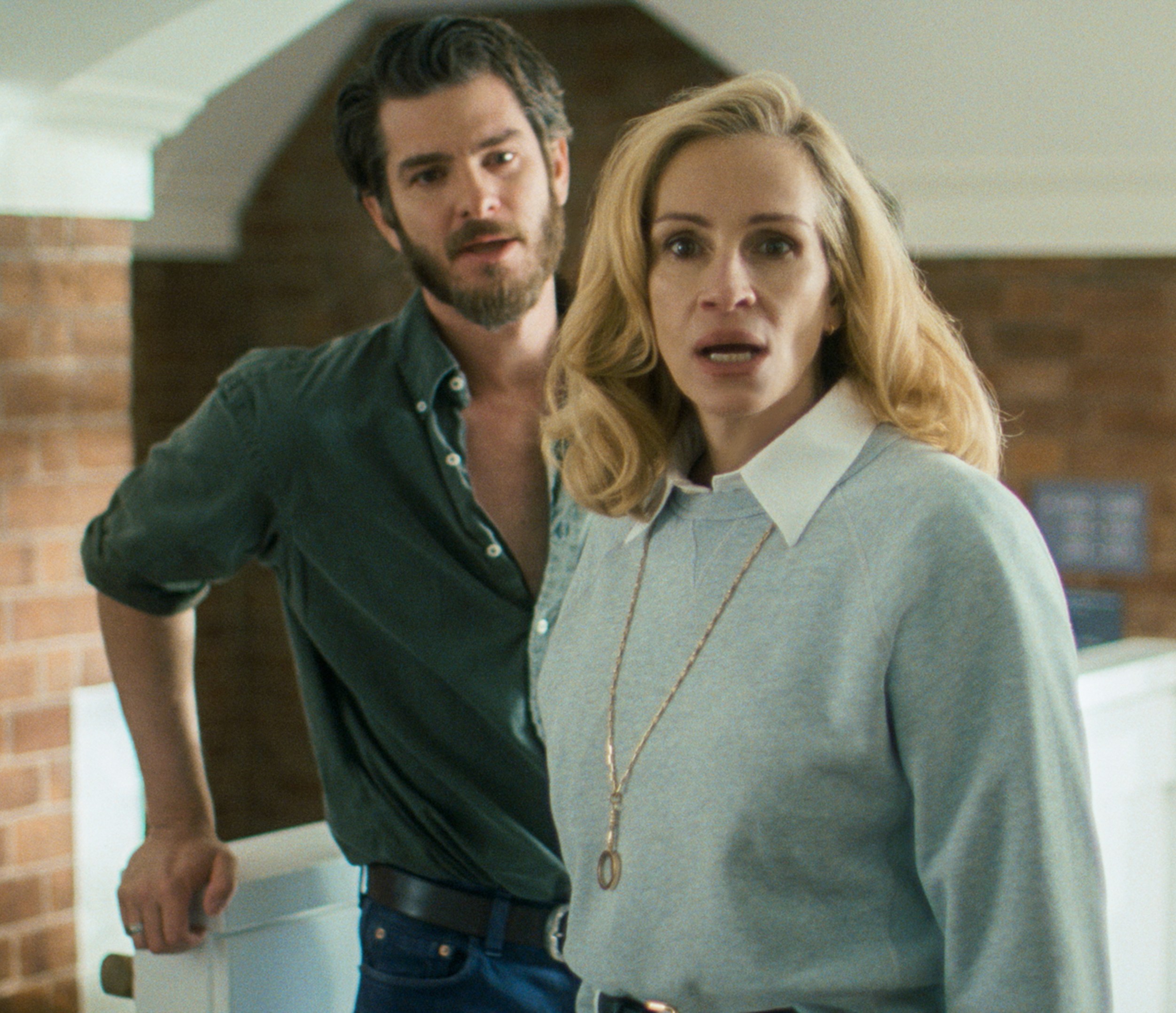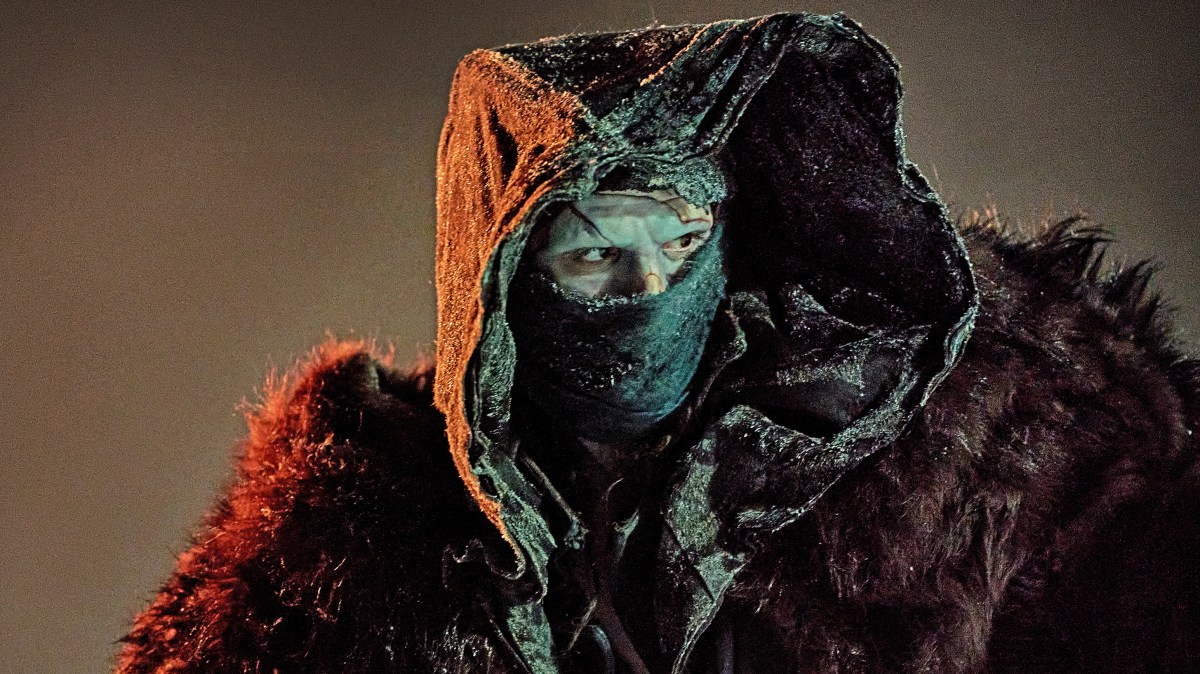Can Guillermo del Toro raise the dead? Next to Martin Scorsese, del Toro is cinema’s leading resurrectionist. After reviving the studio fairytale of the 1940s in Pan’s Labyrinth, the Hammer House of Horror with Crimson Peak and the creature features of the Cold War with his Oscar winner The Shape of Water, he has returned to the granddaddy of all monster tales, Mary Shelley’s Frankenstein, to see if he can bring a flush to its corpse-white cheek.
For the most part the answer is yes — “It’s alive!” — although it takes a while to find a pulse. For the first hour we must hear the story of Victor Frankenstein, misunderstood rich kid who loses his mother in childbirth and so resolves to conquer death. All this is very neat and rooted in Shelley’s novel — she lost her mother, as well as multiple infants, before concocting her tale of parenthood run amok.
But there the Freudianism was latent, whereas del Toro is all about lavish display, from his million-dollar sets to the beautiful chartreuse gown worn by Victor’s sister-in-law, Elizabeth (Mia Goth), whom we first see, from behind, examining a skull, like a cross between Kim Novak in Vertigo and Hamlet.
Like everything else in the movie, the shot looks like an exquisite memento mori and the film can feel both a little overstuffed with craft and perilously close to comic. Oscar Isaac’s beetle-browed Victor intones his lines with a fervid intensity, beneath a dark frizz of hair that recalls the ghost not of Shelley but Mel Brooks.

Oscar Isaac as Victor Frankenstein
KEN WORONER/NETFLIX
Is there any horror left in Victor’s obsession with reanimating spare parts with lightning? Even with the new wartime setting — they collect spare parts from the battlefield — overfamiliarity has drained the story of all possible fright. The blood on Victor’s floor just looks like so much red.
No matter. Once Jacob Elordi takes the stage as the monster — sorry, the creature — everything falls into place. It’s always the way of del Toro: the monsters are better than the men.
• Read more film reviews, guides about what to watch and interviews
And the creature’s story turns out to be far more interesting than his creator’s. Moving with the grace of a Japanese butoh dancer, wrapped in only a loincloth, his bluish-pale skin crisscrossed with fine scars, this very human monster investigates his surroundings with the gingerliness of a newborn. Elordi’s soulful eyes do the lion’s work as he encounters water, sunlight, or the sight of his own face in a mirror.
Previous film adaptations sought only to horrify, but del Toro’s creature, like the novel’s, is as thoughtful as that French philosopher Rousseau as he explores a forest, becomes one with the other creatures, is befriended by a blind cottager and learns to speak. Boris Karloff gave us the best monster but Elordi gives us the best version of what Shelley had in mind, and in its latter stages del Toro’s film has all the innocence of fable.
Who cares, by this point, about the deprivations of Victor’s childhood? There’s room for only one coming-of-age story here, and it’s the guy with the soulful eyes, bluish skin and spare parts up the wazoo.
★★★★☆
15, 149min

Andrew Garfield and Julia Roberts in After the Hunt
COURTESY OF AMAZON MGM STUDIOS
“When did offending someone become the pre-eminent cardinal sin?” wonders Hank Gibson (Andrew Garfield), the young hotshot professor at the centre of a maelstrom of accusations in Luca Guadagnino’s After the Hunt. The accusation is levelled by one of his PhD students, Maggie Resnick (Ayo Edebiri), after a drunken party at the house of the philosophy professor Alma Imhoff (Julia Roberts).
• Julia Roberts interview: ‘Hollywood’s still super-male — but I’m without fear’
Withholding whether there is anything to the accusation or not, Nora Garett’s script plays the dilemma as a he-said-she-said conversation piece in which we are supposed to feel the fur fly between the snowflake sensitivities of Gen Z and the entitled defiance of their elders, with the preponderance of the script’s zingers going to the latter.
“Not everything is supposed to make you comfortable,” Alma snaps at Maggie at one point and nor does the film, with its annoyingly atonal score by Trent Reznor and Atticus Ross, calculated ambiguities and spiky performance from Roberts, wearing a white houndstooth blazer, flats and minimal make-up.
• After the Hunt’s screenwriter: ‘Johnny Depp is still making tons of money’
Lecturing on Foucault, she’s a formidable sight — all of the actress’s prickly intelligence is on display — but it’s still not enough to make the film pleasurable to watch. The plot feels almost deliberately muddled: Maggie turns on Alma for unfathomable reasons having something to do with the script’s vague invocation of an Electra complex, but the constant flip-flops feel slippery, as if Guadagnino had a more blistering film in mind and then bottled it.
★★☆☆☆
15, 139min
Two-for-one cinema tickets at Everyman
Times+ members can enjoy two-for-one cinema tickets at Everyman each Wednesday. Visit thetimes.com/timesplus to find out more.
Which films have you enjoyed at the cinema recently? Let us know in the comments.

